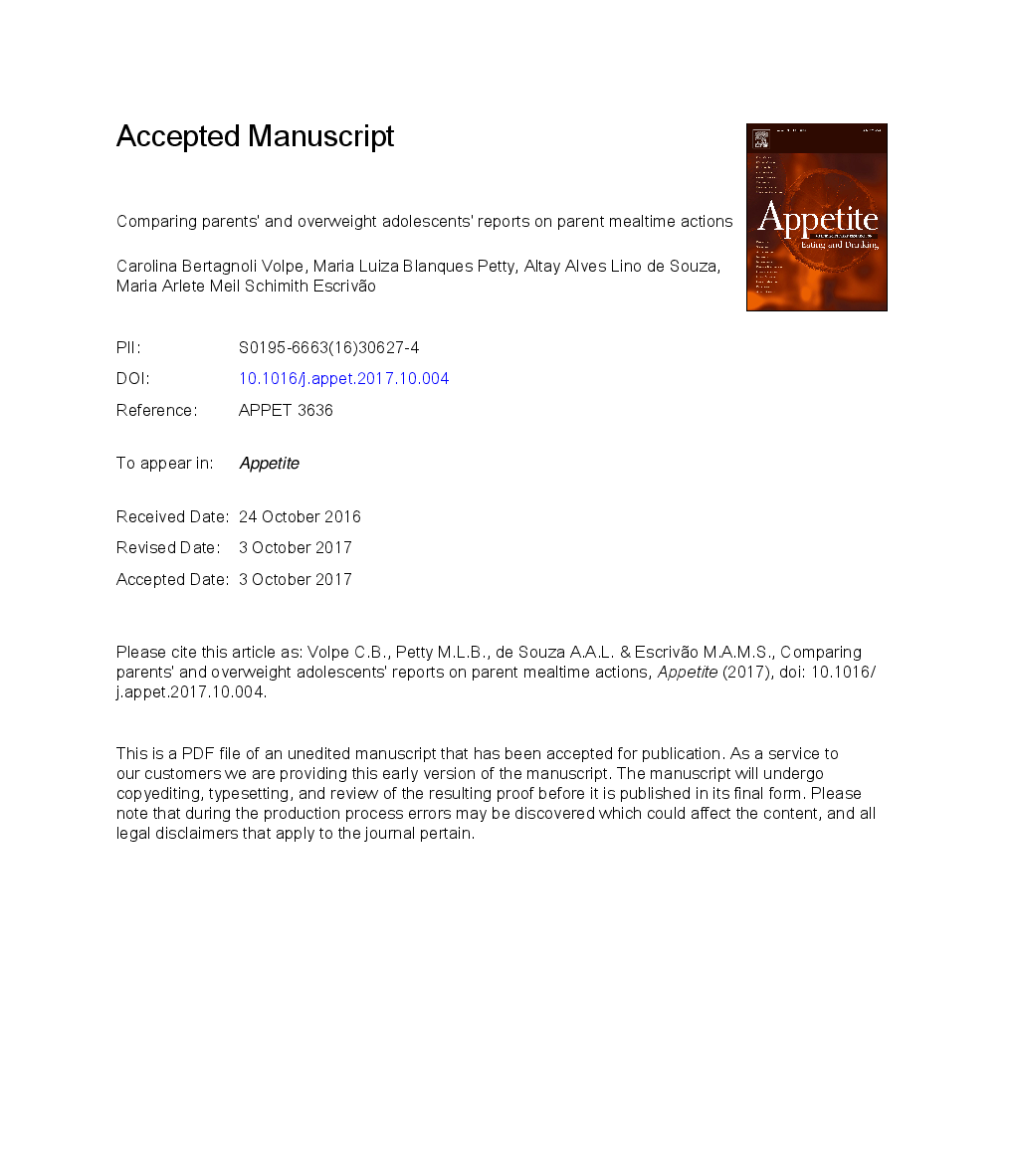ترجمه فارسی عنوان مقاله
مقایسه گزارشات نوجوانان والدین و اضافه وزن درباره اقدامات تغذیهای والدین
عنوان انگلیسی
Comparing parents' and overweight adolescents' reports on parent mealtime actions
| کد مقاله | سال انتشار | تعداد صفحات مقاله انگلیسی |
|---|---|---|
| 131676 | 2018 | 25 صفحه PDF |
منبع

Publisher : Elsevier - Science Direct (الزویر - ساینس دایرکت)
Journal : Appetite, Volume 120, 1 January 2018, Pages 464-471
ترجمه کلمات کلیدی
شیوه های تغذیه والدین، نوجوانان چاقی، اقدام غذا خوردن پدر و مادر،
کلمات کلیدی انگلیسی
Parent feeding practices; Adolescent; Obesity; Parent mealtime action;

